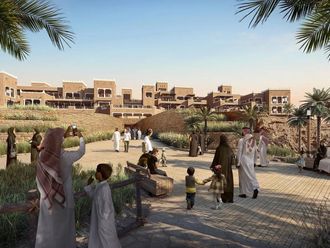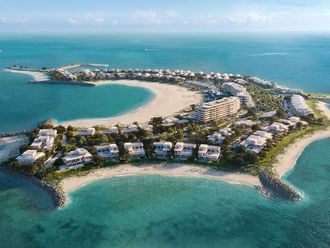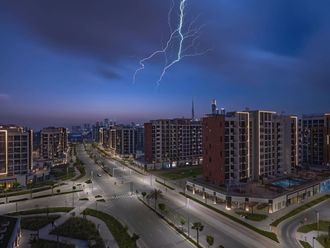Dubai: In a departure from recent forecasts on Dubai residential property, the rating agency Fitch reckons that it will be the mid-market and lower properties that will see price and rental declines. And that higher end properties will show “resilience”.
Performance is likely to be “fragmented”, Fitch adds But since the second half of last year, local developers have been ramping up launches of mid-market homes and taking these to locations further away from the city centre or more established locations. Average prices on these were steadily brought well below Dh800 a square foot. It is a trend that is now playing in Abu Dhabi as well with Aldar offering studios from Dh450,000 and roping in first-time buyers in the process.
According to Fitch, the chances of a near-term shock for the property sector remains remote. “We believe many of Dubai’s master-developers have significantly reduced their debt compared to pre-crisis levels, giving them more flexibility to weather market cyclicality,” it said.
“And the authorities have taken action to reduce risk.”
Also on the plus side, Fitch notes that mortgage based transactions in Dubai now make up 50 per cent of transactions, and for the first time since 2012. But they are still some way off from the 2011 peak of 65 per cent.
Key challenge
“Residential and commercial real estate supply is likely to accelerate after 2017 in preparation for Expo 2020 and the ability of the market to absorb this new supply will be a key challenge,” the Fitch update notes. “More than 56,000 residential units are due to be completed in the next 24 months — but projects could be delayed or cancelled, reducing the pipeline.”
According to Bashar Al Natoor, Global Head of Islamic Finance at Fitch Ratings, “Office rentals will also remain under pressure, although they are still below the pre-crisis peak and little new space will become available in the near term.”
“We expect retail property to face similar pressures to residential and office space from currency depreciation, which makes Dubai a more expensive shopping destination, and from the reduced purchasing power of visitors from neighbouring countries due to low oil prices. The potential introduction of VAT in 2018 could create a further challenge for large retailers in Dubai.”












